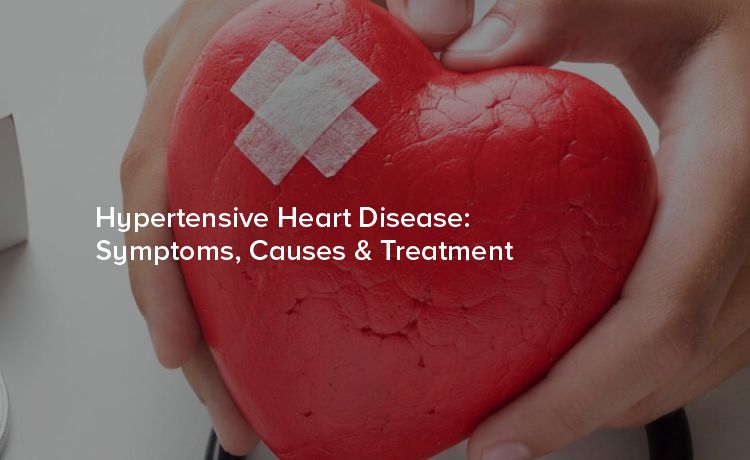
Hypertension, commonly known as high blood pressure, is a pervasive health concern affecting millions globally. Among its many complications, hypertensive heart disease stands out as a particularly severe consequence. This condition, which can lead to heart failure and other severe health issues, is often preventable with the right knowledge and lifestyle adjustments.
Hypertensive heart disease is a term that encompasses various heart disorders that arise due to prolonged hypertension. When the heart works under high pressure for an extended period, it gets strained and damaged, leading to several potential problems, including:
Heart Failure: The heart's inability to pump blood effectively.
Coronary Artery Disease (CAD): Damage or disease in the heart's major blood vessels.
Arrhythmias: Irregular heartbeats.
1. Chest Pain (Angina)
A feeling of pressure or tightness in the chest, often triggered by physical activity or stress.
2. Shortness of Breath
Difficulty breathing, especially during physical activities or when lying down.
3. Palpitations
Irregular heartbeats or a sensation of fluttering in the chest.
4. Fatigue
Persistent tiredness and lack of energy, even after minimal exertion.
5. Edema
Swelling in the legs, ankles, or feet, caused by fluid retention.
6. Dizziness or Fainting Spells
Feeling lightheaded or experiencing brief losses of consciousness.
Hypertensive heart disease primarily results from sustained high blood pressure. However, several factors can contribute to the development of hypertension and, consequently, hypertensive heart disease:
1. Genetics
A family history of hypertension or heart disease increases the risk.
2. Unhealthy Diet
High intake of salt, saturated fats, and cholesterol can elevate blood pressure.
3. Sedentary Lifestyle
Lack of regular physical activity contributes to weight gain and increased blood pressure.
4. Obesity
Excess body weight forces the heart to work harder, raising blood pressure.
5. Smoking
Tobacco use damages blood vessels and increases heart rate and blood pressure.
6. Excessive Alcohol Intake
Heavy drinking can raise blood pressure and lead to heart damage.
7. Chronic Stress
Prolonged stress can contribute to long-term high blood pressure.
Fortunately, hypertensive heart disease can be managed and treated through a combination of lifestyle changes, medication, and, in some cases, medical procedures. Here’s how:
Dietary Changes
Reduce Salt Intake: Aim for less than 2,300 mg of sodium per day.
Eat a Balanced Diet: Focus on fruits, vegetables, whole grains, and lean proteins.
Limit Alcohol Consumption: Stick to moderate drinking guidelines.
Physical Activity
Engage in regular exercise, such as brisk walking, swimming, or cycling, for at least 150 minutes per week.
Weight Management
Achieve and maintain a healthy weight through a combination of diet and exercise.
Smoking Cessation
Seek support to quit smoking, such as counseling, nicotine replacement therapy, or medications.
Medications play a crucial role in managing hypertensive heart disease. Your healthcare provider may prescribe:
Antihypertensives: To lower blood pressure.
Diuretics: To reduce fluid retention.
Beta-Blockers: To decrease heart rate and blood pressure.
ACE Inhibitors: To relax blood vessels and reduce blood pressure.
Calcium Channel Blockers: To prevent calcium from entering heart cells, thereby reducing heart rate and blood pressure.
In cases where lifestyle changes and medications are insufficient, medical procedures may be necessary. These can include:
Coronary Angioplasty: To open blocked or narrowed coronary arteries.
Coronary Artery Bypass Surgery: To create a bypass around blocked arteries.
Heart Valve Repair or Replacement: To address damaged heart valves.
Implantable Devices: Such as pacemakers or defibrillators to manage arrhythmias.
Managing hypertensive heart disease requires ongoing care and attention. Regular monitoring of blood pressure and heart health is essential to catch any changes early and adjust treatment plans accordingly. This can include:
Home Blood Pressure Monitoring: Regularly check your blood pressure at home and keep a log to share with your healthcare provider.
Routine Check-Ups: Visit your healthcare provider regularly for comprehensive evaluations and adjustments to your treatment plan.
Monitoring Symptoms: Be vigilant for any new or worsening symptoms and report them to your healthcare provider promptly.
Hypertensive heart disease is a serious condition that demands proactive management. By understanding its symptoms, causes, and treatment options, you can take the necessary steps to protect your heart health. Remember, lifestyle changes, medications, and regular monitoring are key components of effective management.